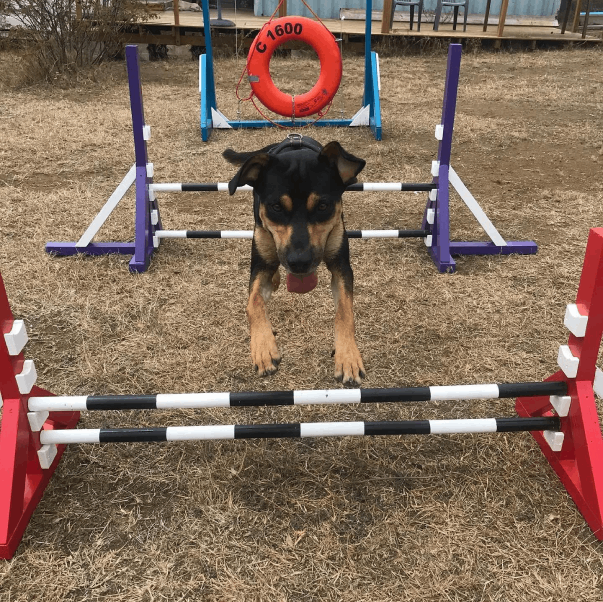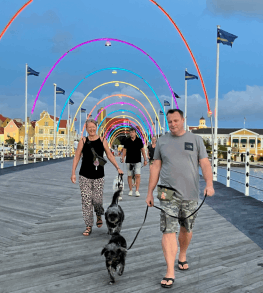Training
Game-based training
Is your dog suitable for training? Absolutely! Dogs of all ages can learn and so can humans. In fact, learning new things and being exposed to new experiences stimulates the brain and creates new connections, improving overall brain health. It’s pretty cool, right?
Whether you’ve recently adopted a puppy, an older dog, or you simply want to strengthen your bond with your longtime companion, or maybe you’ve identified areas where your dog could benefit from some coaching, we have the perfect solution for you: Game-Based Training!
At our training center, we offer a variety of classes and workshops, including puppy classes, basic obedience, agility, clicker tricks, and fun workshops. We also provide online options for those who prefer to train at their own pace. Our online programs, such as the “Sexier Than a Squirrel Challenge,” a 25-day training challenge, and mini-courses like the “No Pulling on Lead,” “No Jumping,” and “No Barking” courses, offer comprehensive training with the added benefit of backup support from our team.
So, what exactly is Game-Based Training? It’s a unique approach where we focus on identifying specific areas, or concepts, that may need attention or support in each individual dog. By using games, we engage their minds and encourage growth in these targeted areas.
Let’s take an example to illustrate this approach. Imagine you’ve taught your dog to come when called in controlled environments such as your home or yard, but when you’re out hiking and encounter distractions like bikers or other dogs, your dog suddenly ignores your command. This can lead to stressful and potentially unsafe situations. While practicing basic commands like sit, stay, and recall at home is important, will your dog be able to ignore distractions outside?
In Concept-Based Training, we understand that every dog is unique, with their own personality and life experiences. Going back to the previous example, if your dog becomes excessively excited when encountering people or other dogs during hikes, we recognize that this behavior stems from Over Arousal. In such cases, it’s crucial to help your dog learn to switch between high and low arousal levels and make appropriate decisions based on the situation.
On the other hand, if your dog becomes insecure, worried, or scared when seeing others in the distance, it’s likely due to fear or stress. In these instances, practicing recall alone won’t address the underlying issue. Instead, we focus on concepts like Confidence, Optimism, and Novelty to help your dog cope with fear and stress. By reducing these negative emotions, we enable your dog’s brain to respond rather than react, making it more likely to choose a practiced response like recall.
At our training center, we tailor our methods to suit your dog’s specific needs. By understanding and addressing the underlying concepts that require support, we can help your dog become a well-rounded and responsive learner.


